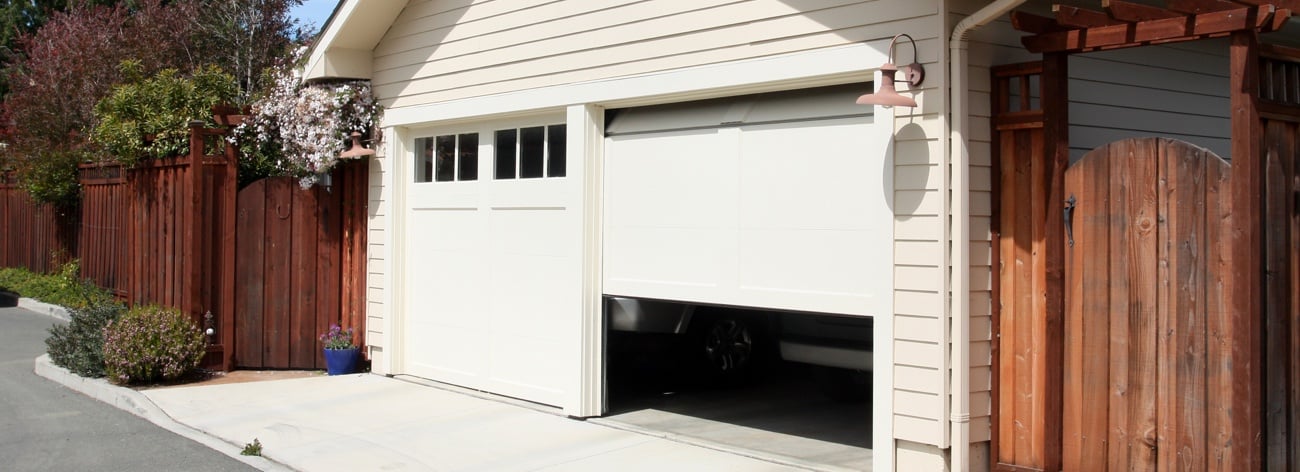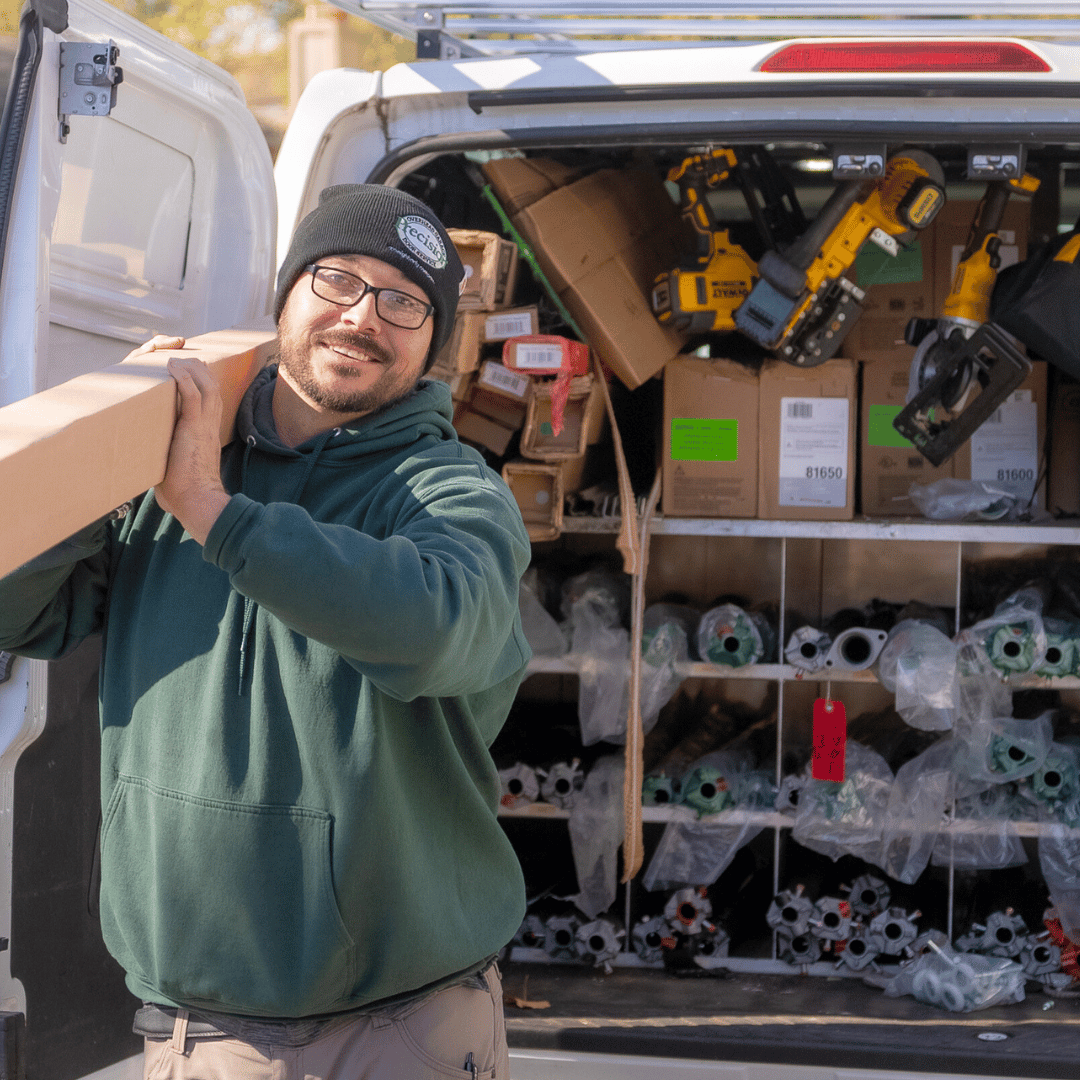A noisy garage door can do more than disrupt your day, it can also signal that your system needs attention. Whether your garage door is squeaking, grinding, rattling, or popping, garage door noise is often a result of wear and tear, poor maintenance, or failing parts. If you’re in the Fort Wayne area and dealing with an unusually loud garage door, here’s what you need to know.

Why Is My Garage Door Making Noise?
Noises usually point to issues with the moving parts of your system. These sounds can build gradually or come on suddenly. Either way, identifying what’s causing the noise early can help you avoid a more serious problem.
Most Common Reasons Your Garage Door Is Loud
- Dry rollers or dirty tracks – Lack of lubrication can cause high-pitched squeaks or grinding.
- Loose hardware – Hinges, brackets, and fasteners can loosen over time and begin to rattle.
- Worn-out rollers – Old or misshapen rollers often create rumbling or dragging sounds.
- Broken spring – A snapping or popping noise may indicate a failed garage door spring.
- Opener issues – Belt or chain-driven systems can become noisy without maintenance.
- Door misalignment – If the door shakes or scrapes, it might be out of balance.
If you’re hearing any of these sounds, it’s time for a garage door inspection.
DIY Tips to Quiet a Noisy Garage Door
Some noise issues can be addressed with simple garage door maintenance, but not all fixes should be handled without experience. Always use caution, especially around the springs and opener.
Quick Fixes You Can Try:
- Tighten all hardware: Use a wrench to secure bolts and brackets, but don’t overtighten.
- Lubricate moving parts: Apply a silicone-based lubricant to rollers, hinges, and springs—never on the tracks.
- Replace worn rollers: Consider switching to quieter nylon rollers. This may be a job for a technician.
- Check the opener: Chain drives tend to be noisier. If the sound is coming from the motor, you might need a garage door opener repair or upgrade.
- Add insulation or padding: Anti-vibration pads under the opener motor can reduce noise.
How to Lubricate Your Garage Door the Right Way
Routine lubrication can significantly reduce garage door noise.
Here’s how to do it correctly:
- Choose the right product: Use a lithium- or silicone-based lubricant made for garage doors.
- Clean before applying: Wipe off dust and old residue.
- Lubricate: Rollers (if not sealed), springs, hinges, arm bar, and bearing plates.
- Don’t lubricate: The track or the motor. These should remain clean and dry.
Lubricate at least twice a year to keep your door operating smoothly.
When to Call a Garage Door Technician
Some garage door noises are signs of deeper mechanical issues that require professional service. Call a Precision technician if:
- Your door opens unevenly or gets stuck
- You hear loud bangs or constant rattling
- The opener runs but the door doesn’t move
- You suspect a broken spring or snapped cable

Prevent Future Noise with Regular Garage Door Maintenance
Staying ahead of maintenance is the best way to extend the life of your garage door and keep it quiet.
Recommended Maintenance Routine:
- Tighten hardware every 3–6 months
- Lubricate moving parts twice a year
- Clean tracks and inspect rollers
- Test the door balance and auto-reverse sensors
- Schedule an annual checkup with a local garage door company
Our technicians can perform these tasks and ensure your garage door is safe and running as quietly as possible.
Looking for a Trusted Garage Door Company in Fort Wayne?
We are your local garage door experts. We work on all major brands including LiftMaster®, Genie, and Chamberlain. Whether you need a spring replacement, opener repair, or a completely new installation, we’re here to help.
- Emergency and weekend service available
- Fully stocked trucks for same-day repairs
- Trusted by homeowners across Northeast Indiana



